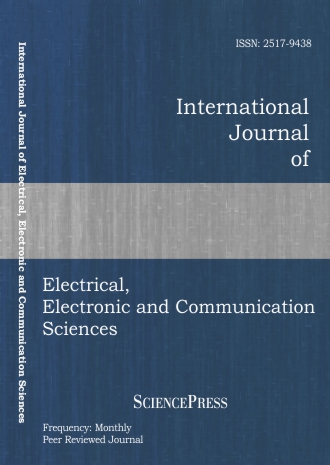
Scholarly
Volume:9, Issue: 2, 2015 Page No: 176 - 181
International Journal of Electrical, Electronic and Communication Sciences
ISSN: 2517-9438
A Novel RLS Based Adaptive Filtering Method for Speech Enhancement
Speech enhancement is a long standing problem with
numerous applications like teleconferencing, VoIP, hearing aids and
speech recognition. The motivation behind this research work is to
obtain a clean speech signal of higher quality by applying the optimal
noise cancellation technique. Real-time adaptive filtering algorithms
seem to be the best candidate among all categories of the speech
enhancement methods. In this paper, we propose a speech
enhancement method based on Recursive Least Squares (RLS)
adaptive filter of speech signals. Experiments were performed on
noisy data which was prepared by adding AWGN, Babble and Pink
noise to clean speech samples at -5dB, 0dB, 5dB and 10dB SNR
levels. We then compare the noise cancellation performance of
proposed RLS algorithm with existing NLMS algorithm in terms of
Mean Squared Error (MSE), Signal to Noise ratio (SNR) and SNR
Loss. Based on the performance evaluation, the proposed RLS
algorithm was found to be a better optimal noise cancellation
technique for speech signals.